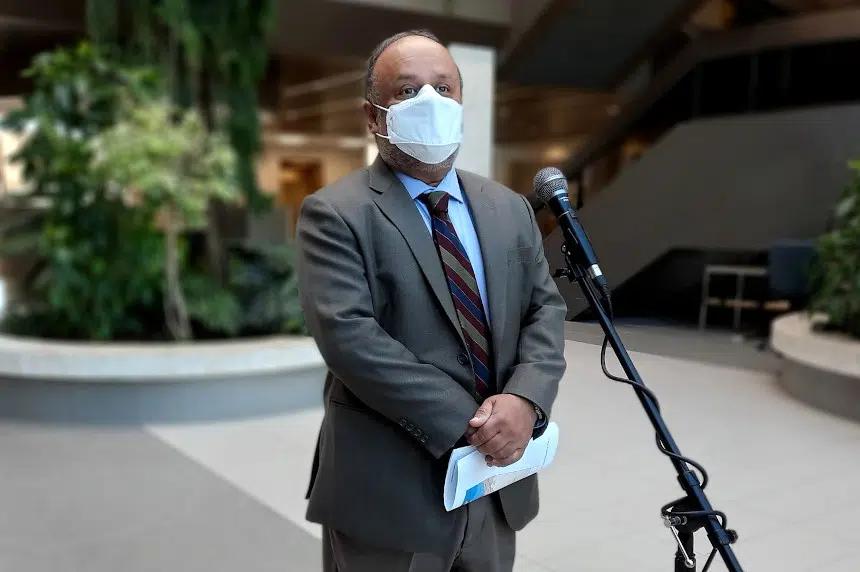Other provinces are moving swiftly into a sixth wave of COVID-19, and while Saskatchewan’s top doctor is watching developments here closely, he doesn’t have the same concerns about this wave as he has before.
Dr. Saqib Shahab on Thursday couldn’t say whether Saskatchewan was already into a sixth wave.
“For the last two to three weeks, we’ve definitely been in a plateau, we haven’t been coming down,” Shahab said.
The new numbers released Thursday from last week show a slight increase in hospitalizations, seeming to indicate an increase in cases, but Shahab said he thinks the numbers need to be watched for another week or two before saying definitively.
While a resurgence in COVID is difficult for the province’s health system and outbreaks in long-term care homes are concerning, Shahab said his concerns about a new wave aren’t the same as they’ve been in the past.
“In terms of something that cause the health system to collapse or societal impacts the way it was in 2020 or the early part of 2021, at this point we don’t have the same concerns,” said Shahab.
“That’s the whole point of this transition phase, that it’s not like you forget everything, but we have to move forward with that balanced approach.”
Shahab said with each wave, the province has had to respond differently. It has now been 26 months since the whole thing started.
“We are all tired. We all want the pandemic behind us, but it’s not. It’s not up to us,” said Shahab.
The chief medical health officer said it’s all about a balance of doing the things you enjoy more now, but also taking the appropriate precautions.
“COVID can’t be the overriding thing influencing everything,” said Shahab.
Looking at modelling every week, Shahab said it shows a bit of a plateau in April and May and then cases coming down in June, and the province is tracking at those levels with a bit of a resurgence now.
Shahab said it’s difficult to make predictions about how long this resurgence will last. Over the next months, if Omicron continues to be the dominant variant, Shahab said the province will experience undulating waves of varying intensities.
“We’ll probably see undulations over the spring and summer — hopefully, (numbers will) go down quite low over the summer — and then maybe come up a bit in the fall,” Shahab said.
He said health officials are all set to give out both flu and COVID shots again this fall.
Shahab continues to encourage everyone to wear masks in crowded places and around vulnerable people, to wash their hands, and to stay home if they’re sick.
“All those things will have an impact on how the fifth wave will end or, if we get into a sixth wave, how that will play out,” Shahab said.
Vaccines are also key, according to Shahab, pointing to hospitals where people who are unvaccinated are still more likely to need care, followed by people who don’t have a booster and older adults.
Only about half of all adults in the province have received a booster shot.
“This is a key message that as we live with COVID over the spring, summer (and) into the fall, going and getting your first booster is key,” said Shahab.
A decision from the province on whether a second booster shot will be given and who will get it is expected Monday, according to Shahab.







